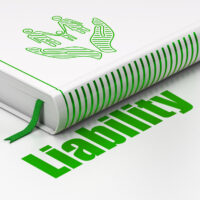Self-Driving Cars Pose Interesting Liability Questions

Ninety-nine out of every hundred car accidents involve operator error. The other 1% constitutes all other possible factors. Within that 1%, one of the most common reasons for accidents is a defective auto part. These cases tend to be complex insofar as they require expert testimony from engineers and others technically proficient in the field. What they don’t require, however, is software engineers. But that could change.
As self-driving or autonomous vehicles become more common, it is raising several fears among drivers and lawyers alike. Common liability issues include whether or not the system is hackable, is the AI as good as a human driver, and is getting rid of human error worth the cost of introducing new and potentially very complex errors that are difficult to pinpoint.
Software and Product Liability
Let’s say that the AI on your self-driving car makes a mistake. Is that a product liability case? Maybe not. This has to do with whether or not you consider software a product or a service.
Let’s assume that software is a product. In a typical product liability lawsuit, the plaintiff need not show that the manufacturer was negligent. They need only prove that in the anticipated use of their product, they sustained an injury. It also helps to show that there was some other available technology on the market that would have made the product safer.
If software is considered a service and not a product, then you would have to prove negligence, which is fundamentally more difficult than a strict liability claim such as defective product cases. Because software is considered a service, there is a higher standard of proof required to bring a claim against a software company. This could have a profound impact on the way in which these cases are tried.
Software and License Agreements
Software tends to have license agreements, which most products don’t have. These license agreements may limit the company’s liability in very specific ways. That being said, no contract is enforceable that requires an individual to give up their rights. However, license agreements can force plaintiffs into arbitration as opposed to allowing a jury trial. Even in cases where the software fails entirely, the vendor may face no liability. Many of the provisions found in software licenses are enforceable.
However, there is a secondary legal imperative that most be followed. If AI’s are the wave of the future on public roads, then the public has a vested interest in holding the companies that developed these AIs accountable when their AIs fail. Allowing an AI designer to insulate themselves from any liability claim goes against the public good.
Lastly, just because AI and software in general sits in a legal gray area between service and product doesn’t mean that it can override the basic rules of traffic. If an AI is violating traffic law and these violations result in an accident that causes injuries, someone needs to be held accountable for those injuries.
Talk to a Miami Traffic Accident Attorney Today
If you’ve been involved in a traffic accident with serious injuries, talk to the Miami personal injury attorneys at the office of Alan Goldfarb, P.A. today for a free consultation.
Resource:
natlawreview.com/article/self-driving-cars-will-likely-increase-product-liability-litigation
